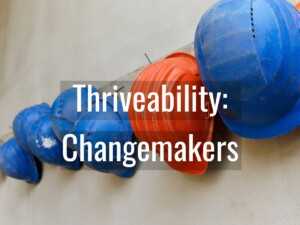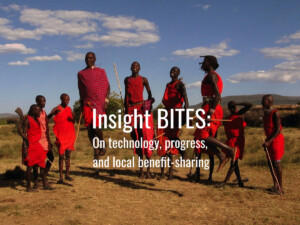Towards ‘magnificence’: The aspirational trajectory of value-creating journeys

‘Magnificent’, the adjective, should properly be applied to human actions and virtues rather than tangible things, derived as it is from the Latin ‘magnum facere’, which means to do something great.
Why is ‘Magnificence’ K Michael Haywood’s “North Star”? And how does he think tourism should navigate towards it?
It’s a “Good Tourism” Insight. (You too can write a “GT” Insight.)
Creating ‘Community Shared Value’ demands that DMOs rethink tourism cluster initiatives, governance and policies.
But, in these times, as we wonder how to begin again, wherein lie the commitments to create authentic breakthroughs and achieve complete transformations?
If we are to restore the integrity of our communities-as-destinations, it’s essential that we progress beyond tourism’s mere functionalities.
But how do we champion the values that embrace those that are emotional, socially impactful, and life affirming?
In the interest of the common good, and, in hope for aspirational futures, how do we ensure that our trajectory does not deviate from being on the Up & Up?
For me it begins by having a North Star, “Magnificence”:

Magnificence
I view magnificence as a civic virtue that conjures up the extraordinary.
It guides us in all we set out to do and achieve for others; and it emboldens us to eliminate misery and vilify mediocrity, thereby allowing us to compose our own odes to joy.
If not, there “ain’t no sunshine” when it’s gone, particularly if we permit environmental calamities to remain unresolved; inappropriate tourism development to continue unabated; or injustices and inequities to persist.
It’s downright disheartening when visitors disappear, employees feel exploited, citizens are upset, and communities compromised or abandoned. In such circumstances, destination life cycles are bound to collapse.
Magnificence can be achieved. Most threats can be circumvented or removed. Recovery and resurrection are always possible. After all, when we set out to win the long game, the human species is capable of mustering boundless energy and resilience.
Jobs-to-be-done
The success of individual enterprises and communities-as-destinations has been premised on satisfying visitors to earn their loyalty. This requires being attentive to human needs at any given moment in time.
But, do we really make the effort to fully comprehend their needs? To be honest, It seems not, unless we are fully aware of our customers’ “jobs-to-be-done”.
As Clayton Christensen argues, needs are better interpreted when we understand the progress our customers want to make, the hope they want to accomplish.
Of course, it’s essential that we remain attentive to prevailing circumstances, appreciative of what people do not want to give up, and cognizant of choice that too often is held back by that which is deemed convenient.
To create community shared value, however, the “jobs-to-be-done” mandate has to be extended. The needs of multiple stakeholders — citizens, employees, and others throughout value chains — have to be considered, as everyone seeks to create and capture value for themselves and the community to which they are affiliated.
This requires a holistic approach that takes into account the significance and magnitude of the interaction effects among all participants, and the various outcomes everyone hopes to achieve.
As such, amendments to how the typical jobs-to-be-done canvas is formulated, designed, and implemented have to be made.
Also see K Michael Haywood’s other “GT” Insights:
“Tourism’s challenge: How do we create ‘community shared value’?”
“Winning from within: How can travel & tourism stem the brain drain?”
“Smart clusters: How destinations can organise for a better future”
“Can tourism destinations-as-communities be smarter by design?”
Magnificence becomes achievable when we challenge “the way things are”, pursue preferential outcomes, realise them, and make them reciprocal.
Nobody truly wins unless everyone wins.
Such a whole-of-community approach to “jobs-to-be-done” represents an intensification of complexity, necessitating deep micro and macro analysis in order to learn what is meant by “progress” and “accomplishment” within the community-at-large.
As the preceding graphic reveals, initial attempts to create value start by applying “jobs-to-be-done” requirements and making sure everyone is aware of the “Law of Least Astonishment” that demands avoidance of unpleasant surprises.
By contrast, the lean start-up movement focuses on launching minimum viable products (MVPs). MVPs require a progressive process of experimentation and constant learning about what customers and citizens need and how they will use and react to new products. They assume everyone will be patient and forgiving.
With the intent to progress, step-by-step, from mediocrity to magnificence, one might wonder whether such a lean approach is applicable to visitor-related offerings.
A destination’s visitors and stakeholders, with different value configurations, may be unimpressed by any glitch or in-the-moment deficiencies.
And operators or service providers who may be unable to discern dissatisfaction or may feel uninclined to implement service recovery.
Don’t miss other “Good Tourism” posts tagged with
“Community-based tourism”
As a compounding factor, dominant “complacency” behaviors can serve to limit the ability to supersede “mediocrity”.
Why? Short-term thinking, strict management-by-objectives, ingrained habits, and quest for efficiencies often curtail desires to create improved functionality, let alone offer emotional, social impact, or life-affirming value.
These and other limitations subordinate the well-being of some stakeholders to outcomes important to others.
In fact, tourism activities are known to undo the comfort of continuity important to many stakeholders, placing a damper on achieving magnificence, unless mitigating forces come into play, or attitudes and behaviors change.
In order to circumvent an inevitable slide into oblivion, an up and up trajectory towards magnificence requires a “begin again” mentality that, when supported and funded (e.g. British Columbia’s Pivot Program), can evolve, skillfully and graciously.
Given the confluence of urgencies we face today, virtually everything has to be re-framed in more human-centric or value-laden ways.
These require application of design thinking processes that take into account all the relevant needs of people, the values they hold dear, and the “jobs-to-be-done” so the progress they want to make can be well-articulated and set into motion.
Responding to the inevitability of value migration
Over time, it’s natural for what has value to shift or become unstable.
During these pandemic times consumer preferences and behaviors are undergoing tremendous change, creating unprecedented woe in executive suites. Everyone is wondering how to re-position and revise their value propositions.
Then there are businesses that remain cavalier about going the extra mile for visitors, or remain inattentive to the need to be compelling and sustainable, even to complement the cultural integrity of their communities.
Such ineptitude can have cascading effects throughout a community, so it helps when intervention and assistance is made available.
It’s often assumed that relationships within tourism clusters are strong, but experience reveals that different stakeholders can either be catalysts or retardants in regard to the creation of value.
Outcomes depend so much on the attitudes stakeholders reveal toward each other; on the strategic nature of the fit between the relationships and the policy environment; but, more so, on the need to develop and manage for trust.
Don’t miss other “Good Tourism” posts tagged with
“Inclusive tourism”
As such, a pressing question today is whether values and culture are at the heart of thinking about public policy?
If not, then, we as an entire industry have an obligation to mount the evidence to support the values we hold dear and reveal how indispensable they are.
In order to mitigate any depletion of value or goodwill, individual organisations and communities-as-destinations have to be constantly vigilant.
It is one thing to stay on top of trends, but quite another to appreciate the subtle shifts in “jobs-to-be-done” mandates, and resolve the pain points people experience.
Who, however, is making the effort to undertake the necessary assessments and interventions?
Visitor-serving enterprises desire happy and healthy customers, but how many actually track their achievement, utilising, for example, net promoter scores?
Is the same being done for employees and citizens; the front- and back-of-house providers of hospitable services?
Ignore the power to do right for the people and the community-at-large and you signal disdain for the contribution of others, and forestall progression towards magnificence.
Achieving net positive integrated value
It has been said that Net Positive outcomes represent the epitome of success today.
Formulated from a set of guiding principles and measurements based on “a strong economy, an abundant natural environment and a happy society”, they reflect a community’s commitments (or manifestos, e.g. conscious tourism) to make sure tourism activities create value for all stakeholders within communities.
As a reflection of community alignment with those principles, “magnificence” results from demonstrably superior and successful local value-creating initiatives.
When based on outcome-driven innovation (ODI) processes important to all stakeholders, their “jobs-to-be-done” are far more likely to be get accomplished.
Consider the introduction of social innovation breakthroughs in tourism, and the attention to the design of people-centered places, particularly a community’s public squares, its streets or markets.
When the life-affirming value of sustainability is taken seriously, community and corporate social responsibility (CSR) initiatives are more likely to be incorporated into organisational business models and actions.
However, the use of ODI for tourism-related development is still in its infancy.
For example, peruse this document from Canada’s Northwest Territories.
Value creation may be implied, but imagine if “magnificence” and/or “net positive integrated value” were given prominence. Wouldn’t multiple forms of community shared value breakthroughs be more likely to occur?
What is called for is an industry-wide commitment to re-imagine, which when combined with the power of progress and the “courage to lead” could create regional advantage through collective learning and territorial differentiation (e.g. Visit England).
Don’t miss other “Good Tourism” posts tagged with
“Policy and governance”
Such efforts signal the need to encourage growth mindsets and the inherent “power of yet” that capitalise on the motivators that drive innovation.
Supported through on-going conversations, collaborative and triaged opportunities, they would allow organisations and communities to achieve mastery and close achievement gaps (consider the Urban Innovation Centre, and their Catapult Future Cities initiative).
If communities-as-destinations are to truly commit to taking collective responsibility for bringing all the values important to stakeholders to life, it’s essential to identify the strategic and structural requirements of community shared value.
To do so, improvements to internal networking, communication, and collaborative activities are required.
Attention should be given to the development of Destination (Tourism) Innovation Hubs and start-up incubators (e.g. Montreal’s MT Lab).
The success of such hubs depends on how well they escape engrained process mentalities that can obstruct innovation, and how well they hone in on the intentional learning required to identify breakthrough innovations that meet all personal, community, organisational, cultural, and nature-based requirements.
The time couldn’t be more opportune for magnificence to be our north star.
Community shared value is within grasp.
Start by assembling a diverse cross-section of people in your tourism cluster tasked with identifying the functional, emotional, social impact, and life-affirming innovations that would help achieve net positive integrated value.
Featured image (top of post): Towards ‘magnificence’: The aspirational trajectory of value-creating journeys. Image by Jill Wellington (CC0) via Pixabay.
About the author

K Michael Haywood is Professor Emeritus, School of Hospitality, Food and Tourism at the University of Guelph in Ontario, Canada. Prof Haywood has recently written an e‑book “Astonish, Smarter Tourism by Design”. Find Michael on LinkedIn.





